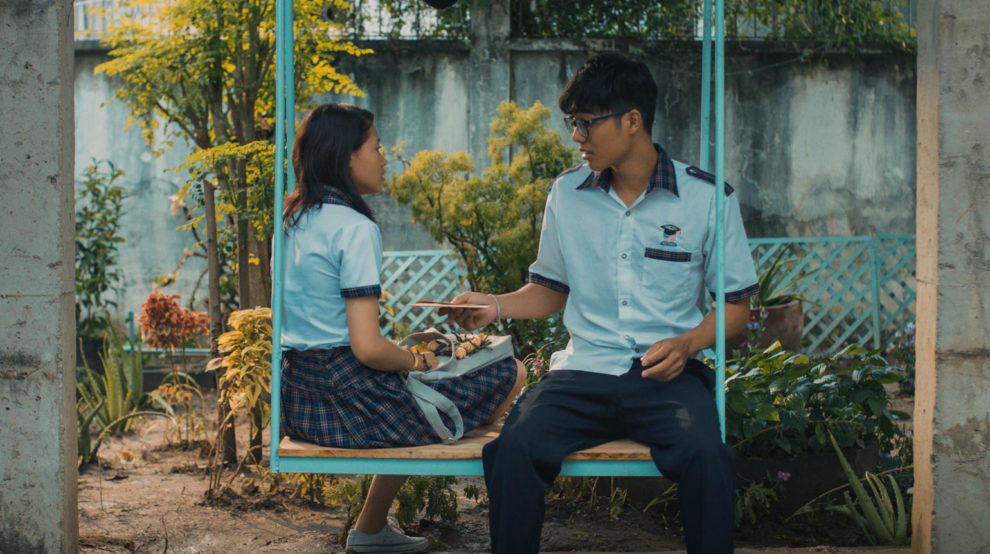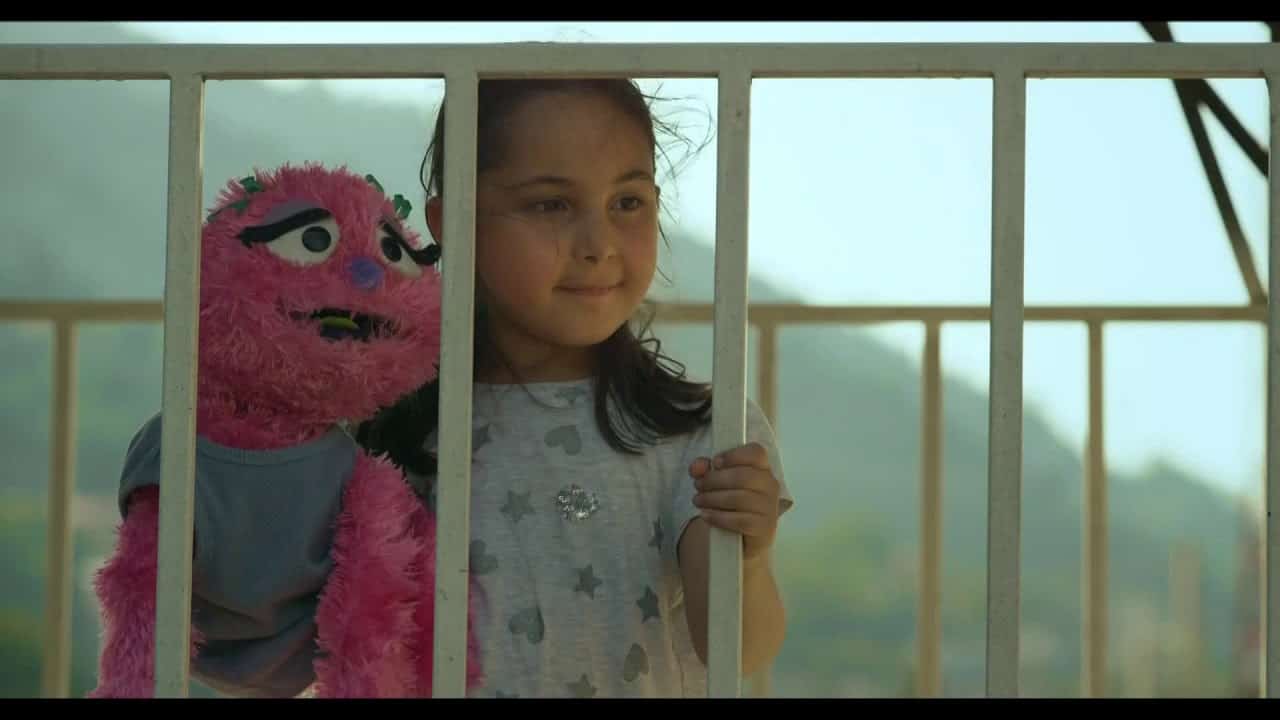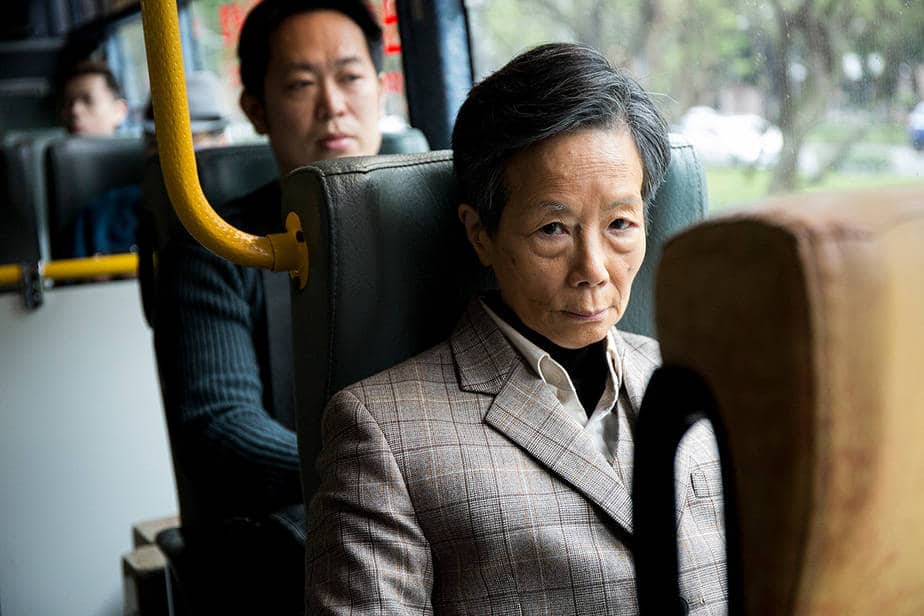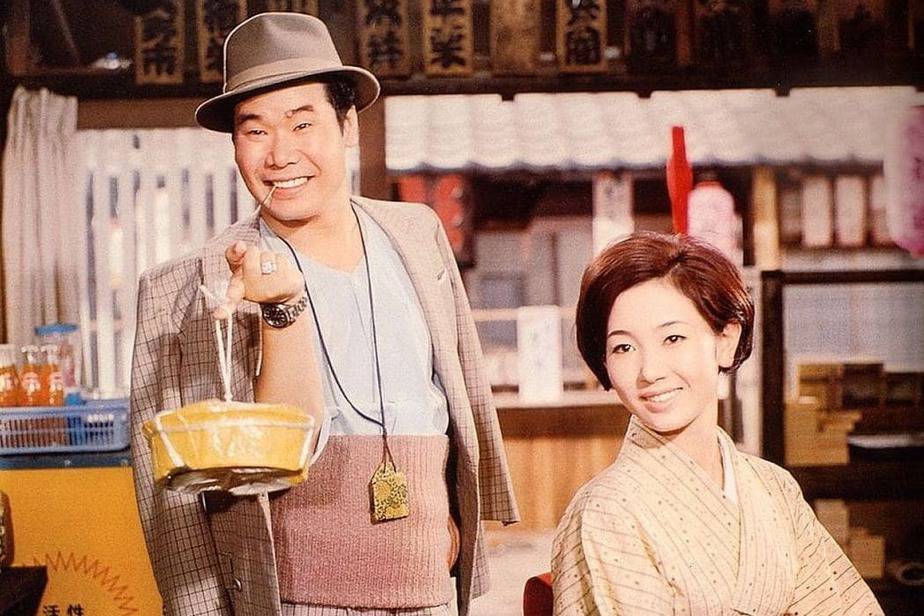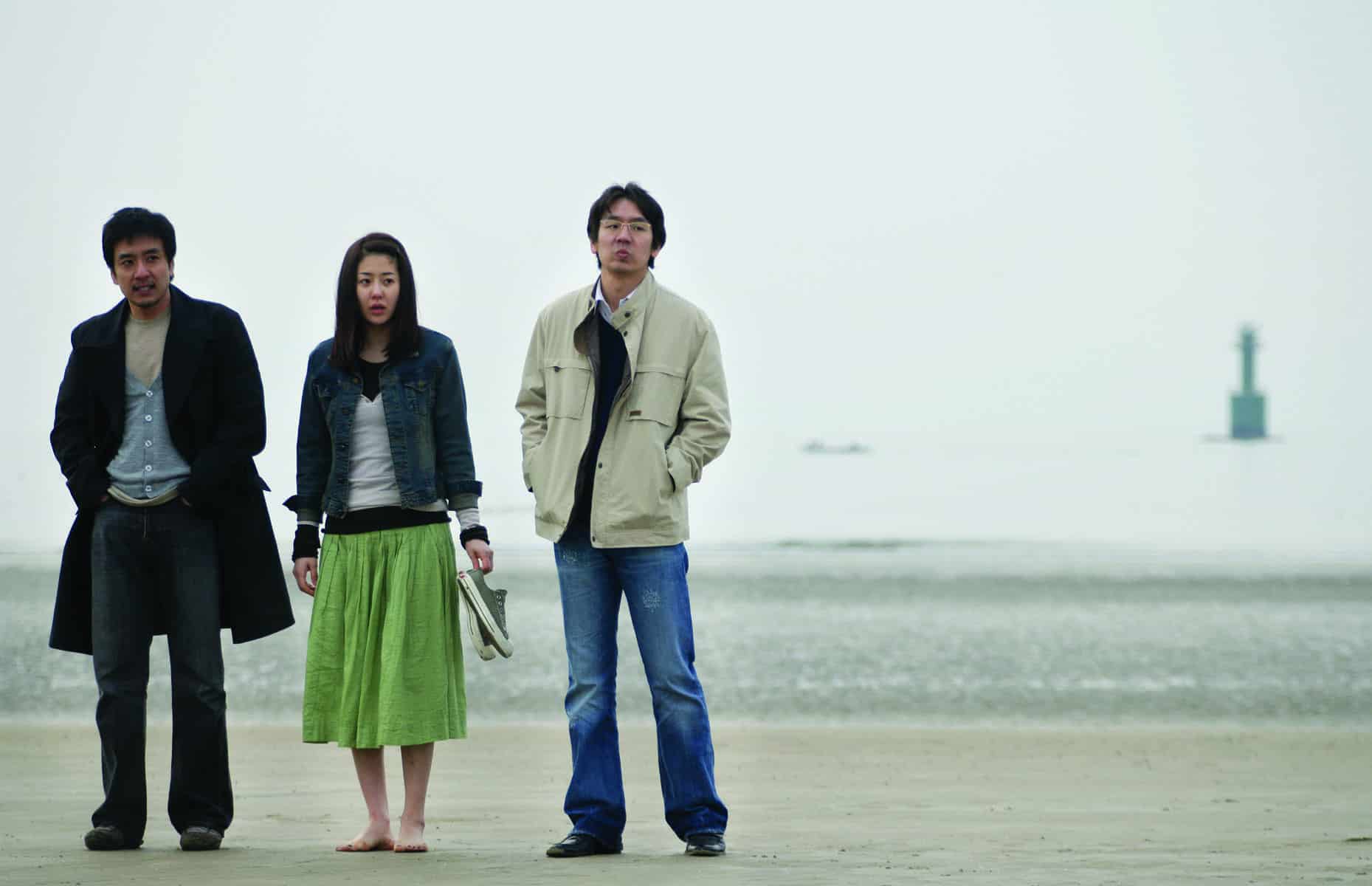Teenage rom coms have been an internationally favorite genre, with the school environment and the first signs of romantic love finding appeal among numerous viewers around the world. Lomorpich Rithy tries her hand in the genre in her debut, in a film that is visually beautiful but suffers on a number of levels regarding its narrative.
“Young Love” is screening in Locarno Film Festival

Kesor, who also functions as the narrator of the movie, is a 15-year-old girl growing up in Phnom Penh with her grandmother, while attending a high class school, Western International. Kesor has a rather close relationship with the rich, shy boy next door, Rith, which always seems to linger towards becoming romantic, particularly since discussions about first kisses have become more frequent as the story begins. Eventually however, during a trip to the country, Kesor meets dashing older student Veha, whose father has just shattered (literally) his dreams of becoming a professional musician. Their relationship moves forward slowly, but the romantic implications are quite obvious, also to Rith, whose disappointment is also matched by his hope that Kesor would eventually see the mistake in her ways. She, however, moves further and further away from Rith and the rest of her previously best friends, while Rith finds company in another girl in school. The fact makes Kesor finally see him in another light, but her previously alienating ways have definitely taken a toll. Meanwhile, a disgruntled Veha discovers a secret about Rith and the clash between everyone involved seems unavoidable.

Lomorpich Rithy directs a film that is rather naive on a number of aspects. The main source is the fact that a big part of the narrative is based on the fact that Kesor, and to a point, Veha, do not seem to realize Rith's feelings for her, despite the fact that everyone around them does so, including Kesor's grandmother, a trope that eventually goes too far. Furthermore, in an effort to break away from the lightness of the teenage rom-com, Rithy has included a number of episodes that aim at social commentary, with the homosexual boy that is being tortured in social media and Veha's relationship with his father being the main aspects of this approach. These episodes, however, are rather brief, and do not seem to lead particularly anywhere, since they are soon forgotten in the story, and they appear completely disconnected from the rest of the narrative. The same applies to a flirt Kesor's grandma seems to have with the peddler across the street, this time, as an effort towards comedy. Lastly, the sequences of traditional Cambodian opera may look impressive, but again, are rather disconnected from the overall narrative, with the same applying to the extensive use of music and live performances, which, after a point, appear like some sort of promotion elements, in probably the most annoying aspect of the movie.
Some issues also exist with the writing of the main arc and particularly the plot twist with the letters, which seems completely illogical and hyperbolic, not to mention that the abundance of letter-writing in a story where smartphones also play a central role, is rather misplaced.
The last fault of the movie lies with the acting, which, particularly for the two main leads, is on a rather low level, especially in the more demanding scenes, with the only one giving a worthy performance being Chansreyden Kong as Kesor.
On the other hand, the visual aspect of the movie, courtesy of DP Jeremiah Overman, is rather impressive, with him capturing both the urban and the rural settings the story takes place in with utter artfulness, with the coloring, particularly on the night scenes, also being a point of excellence. Loy Te's editing also works well in the episodic nature of the narrative, while the fast pace he implemented works well here, essentially “masking” some of the issues with the writing.
“Young Love” has its merits, particularly regarding its production values, but suffers much due to its script and overall aesthetic and contextual presentation.


